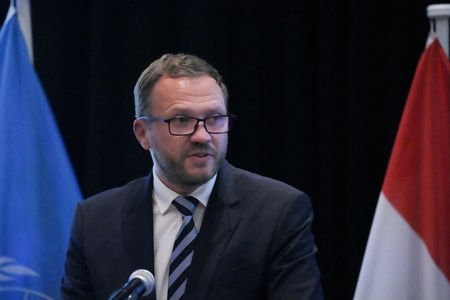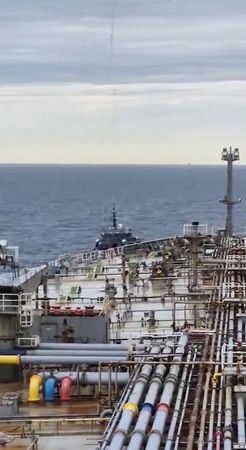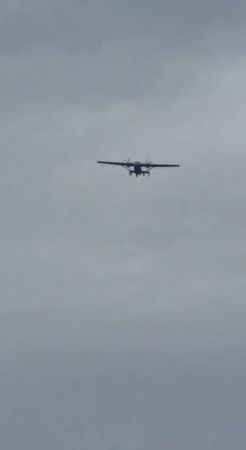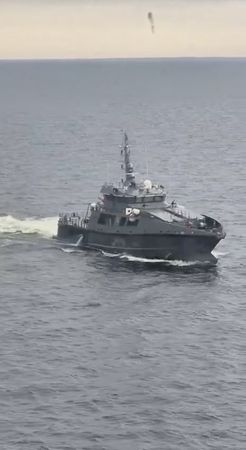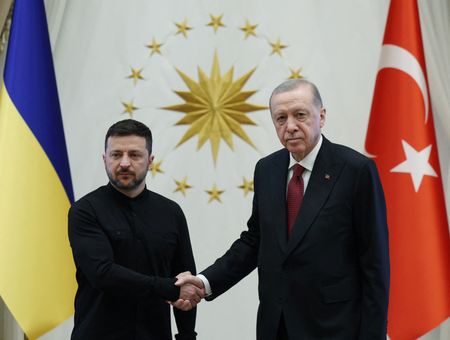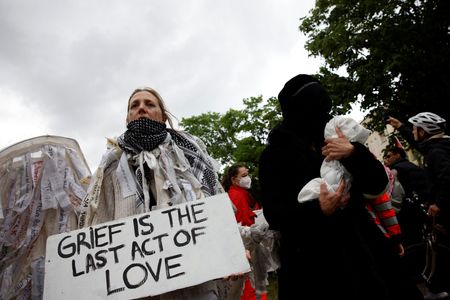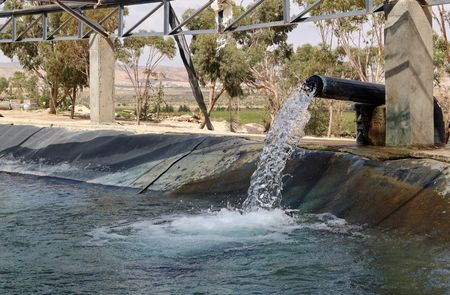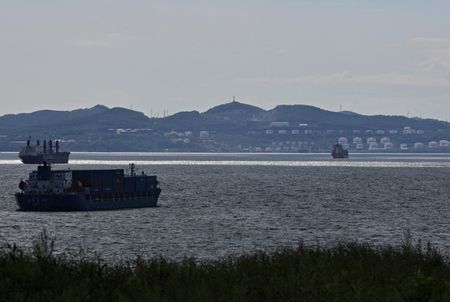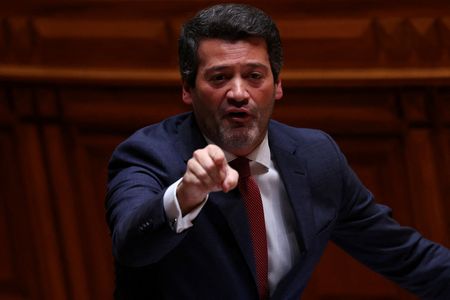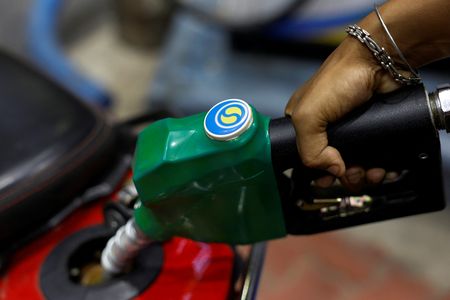By Andrius Sytas and Sabine Siebold
TALLINN/ANTALYA, Turkey (Reuters) – Estonia said on Thursday that Moscow had briefly sent a fighter jet into NATO airspace over the Baltic Sea during an attempt to stop a Russian-bound oil tanker thought to be part of a “shadow fleet” defying Western sanctions on Moscow.
Russia, which views sanctions as a malign attempt to crush its economy, says its ships have free passage in the Baltic, any attempt to stop them is dangerous and it is ready to respond.
NATO alliance member Estonia’s military said the unflagged Jaguar ship, which went onto a UK sanctions list last week, was sailing in international waters between Estonia and Finland and refused to cooperate when asked to stop.
It was eventually escorted to Russian waters.
“The Russian Federation sent a fighter jet to check the situation, and this fighter jet violated NATO territory for close to one minute,” Estonian Foreign Minister Margus Tsahkna told reporters in Turkey.
“(The) Russian Federation is ready to protect the ‘shadow fleet’… The situation is really serious.”
Western nations say Moscow is using hundreds of ageing oil tankers to dodge a plethora of sanctions intended to punish Russia for its full-scale invasion of Ukraine.
Moscow still sends millions of barrels of oil and fuel every day to buyers in China and India.
Its vessels often have opaque ownership structures and sail without top-tier Western insurance and safety certification.
A Russian SU-35 fighter jet approached the tanker and circled it, flying in international airspace except when it violated Estonian airspace briefly on approach, said a spokesperson for Estonia’s defence forces.
Margarita Simonyan, head of Russia’s state media outlet RT, said the jet was sent to prevent the vessel’s seizure.
Finland accused Russian ships of behaving recklessly in the area while Lithuania expressed fears of conflict.
“Russia is clearly demonstrating that it is ready to protect the route for its oil. We need to act carefully and rationally, so that escalation does not turn into a military clash,” said Lithuanian Prime Minister Gintautas Paluckas.
‘FOLLOW MY INSTRUCTIONS’
Estonia said NATO military aircraft had also taken off to inspect the Gabon-listed Jaguar.
Estonian Naval Commander Ivo Vark told Reuters the Jaguar was near Naissaar Island off the Estonian capital Tallinn when it was contacted by radio on Tuesday afternoon to check its status because it was sailing “without a nationality.”
When it declined and continued towards Russian waters, the navy opted to escort it there with a patrol ship.
On Thursday, the Jaguar was anchored near the Russian port of Primorsk, Marine Traffic data showed.
Footage on X shared by Simonyan and purporting to be filmed from the bridge of the tanker shows an Estonian navy patrol ship, helicopter and aircraft nearby. An identification number seen in the video matches the Jaguar.
“This is Estonian warship … follow my instructions, alter your course to 105 immediately,” a voice in English sounds over a radio.
“We are met by helicopters, they demand we go on anchor,” says another voice in Russian off-camera. Someone else, in Hindi, adds: “The plane is on top of us. It’s either an aircraft or a drone. The military ship is turning towards the stern of the vessel.”
A military jet, which Estonia does not operate, is also glimpsed nearby.
The Jaguar, previously named the Argent, had earlier this year loaded oil at the Russian port of Ust-Luga, sailed to India and returned to Primorsk, LSEG tracking data showed.
Its owner, listed on ship databases as Mauritius-based Sapang Shipping, could not be located for comment.
Authorities in Gabon did not immediately comment on Estonia’s assertion that the ship is on their registry.
Kremlin aide Nikolai Patrushev told the Kommersant newspaper last month that Russia’s navy was ready to protect ships.
“Hotheads in London or Brussels need to understand this clearly,” he said, adding that Western efforts to block Russian ships were beginning to resemble a “naval blockade”.
(Reporting by Andrius Sytas in Tallinn, Sabine Siebold and Tuvan Gumrukcu in Antalya; Additional reporting by Dmitry Zhdannikov and Jonathan Saul in London, Supantha Mukherjee in Stockholm, Andrew Gray in Brussels, Geraud Wilfried Obangome in Libreville; Writing by Andrius Sytas and Gwladys Fouche; Editing by Andrew Cawthorne and Gareth Jones)

